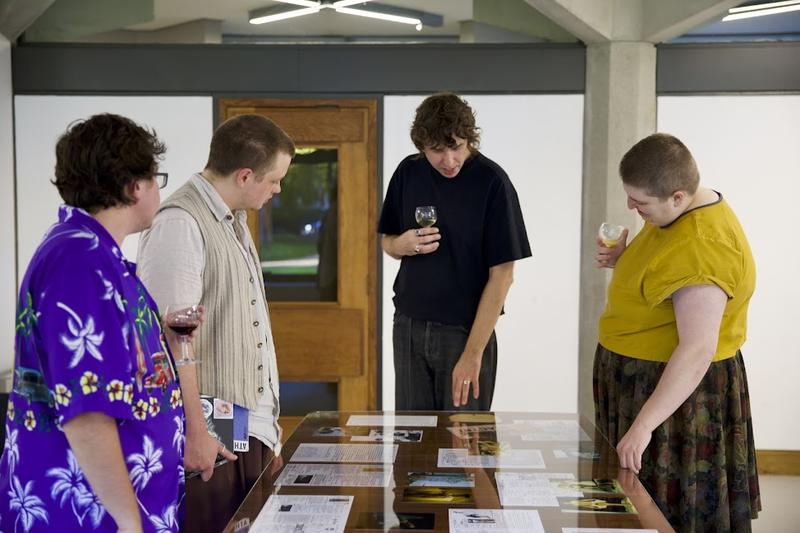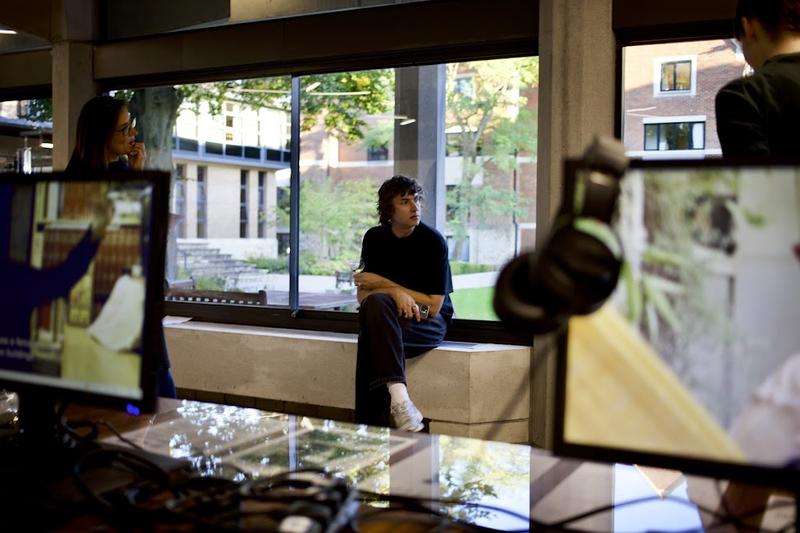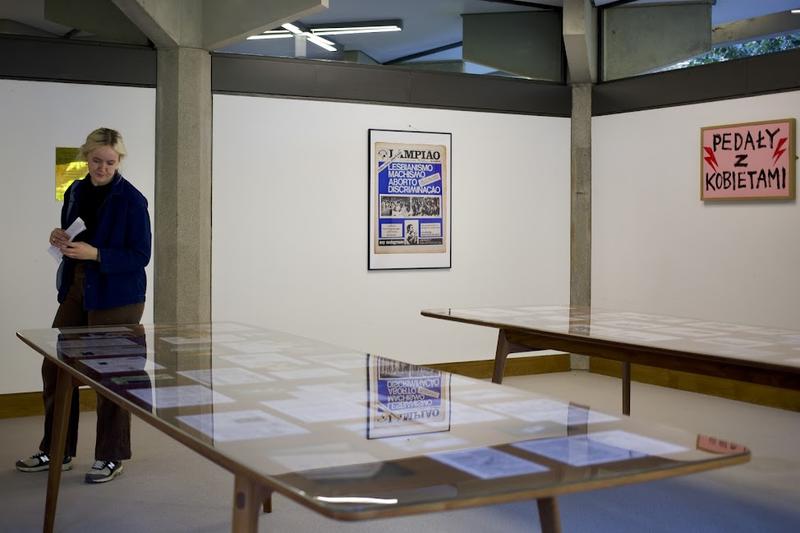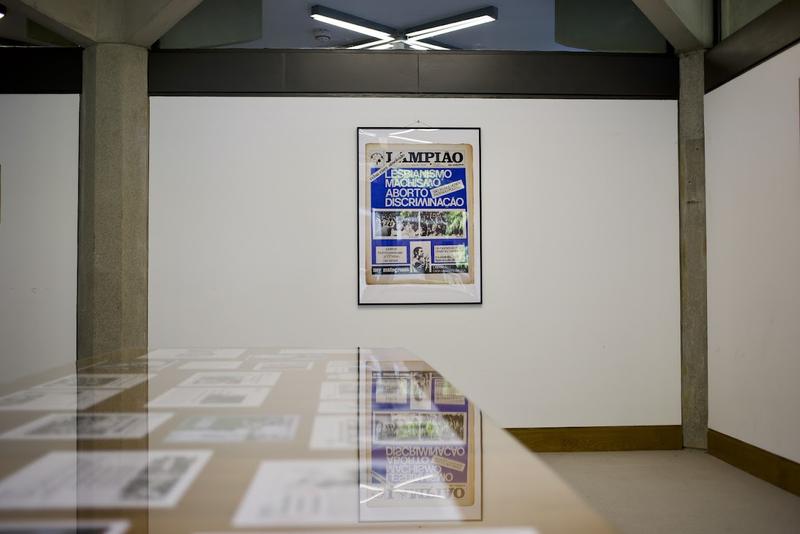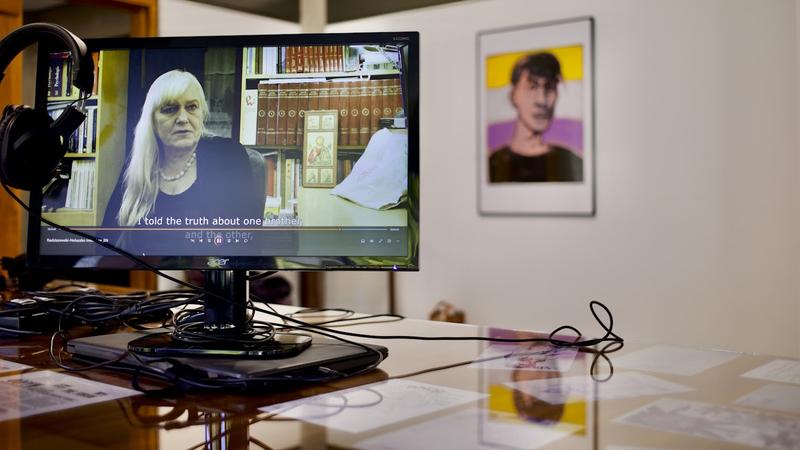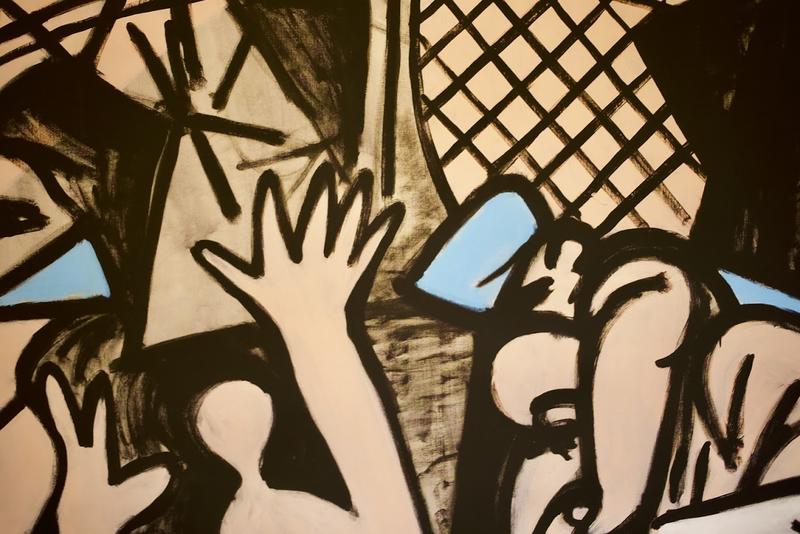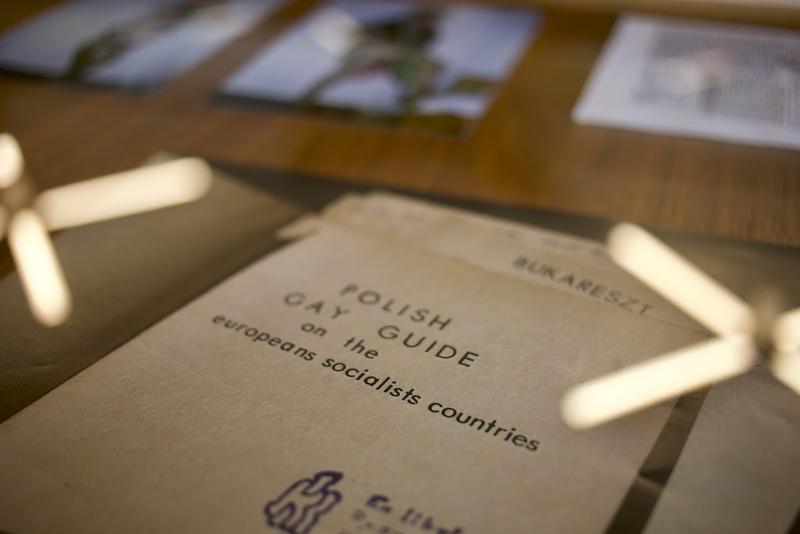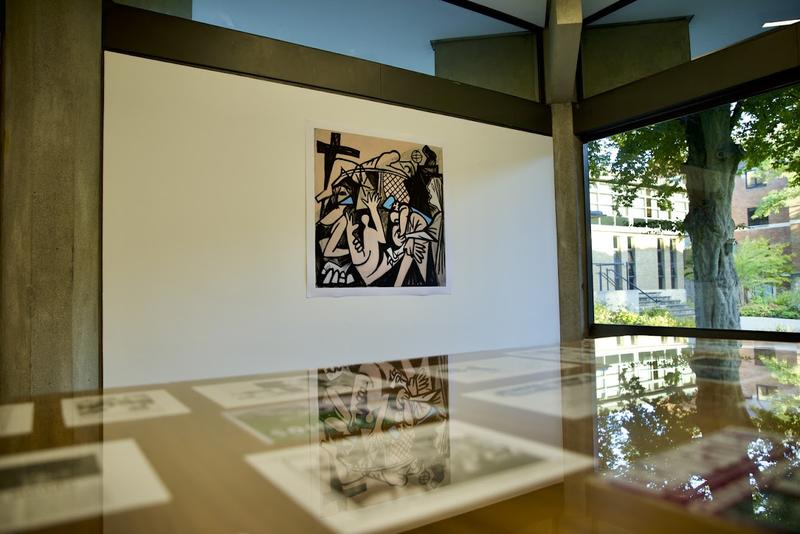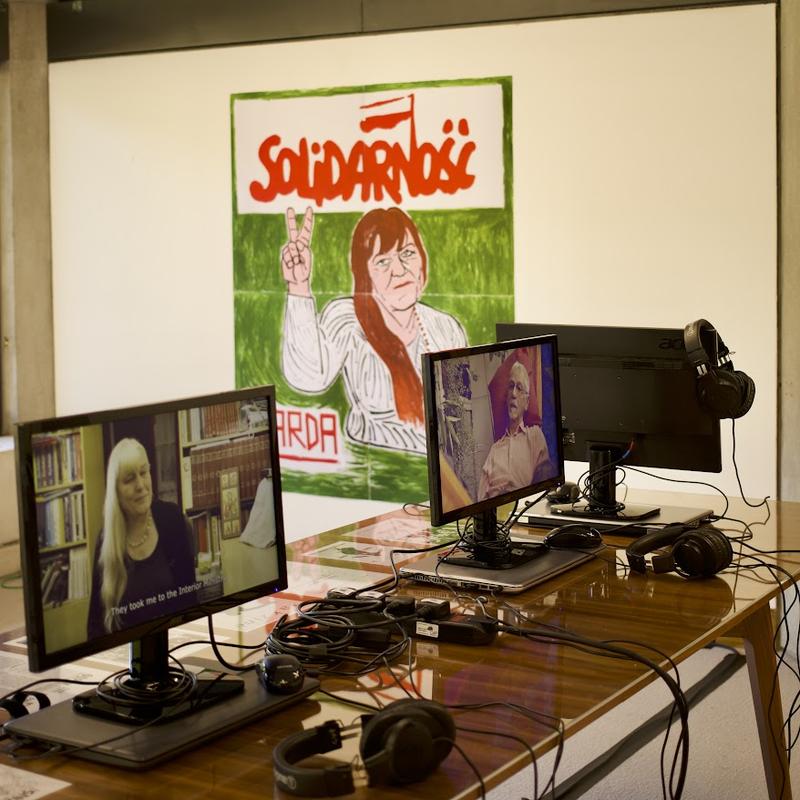Karol Radziszewski “Gender Wars”
In 2015, I decided to create something that I called the Queer Archives Institute. First, I wanted to add “Polish” or “Central-Eastern European” to the title, but then I thought if it had been a North American project, it would be called just that, suggesting its default global character. I decided then to centralize our region and make a Queer Archives Institute for the whole world, but focus only on Central Eastern Europe and some other countries often called ‘peripheral’. More or less at the same time, I was invited to do a residence in VideoBrasil in São Paulo, Brazil.
While I was in Brazil, there was a constant discussion about “Global South” and “Global North.” Because I always heard that we are just “Global East,” I asked my collaborators “Is Poland South or North?” And then half of the people would say, “Yeah, you are in the European Union. You are rich. So, you are obviously Global North.” But then other people said, “No, you are a post-colonial/post-Soviet country. So, you are Global South”.
That was very refreshing as I always heard that there is the East and the West; we should want to be like the West, but we are in the East. It was transformative for me and that’s how I started to work on the material that is presented at the “Gender Wars” exhibition.
The show explores histories of gender-non normativity and queer activism in globally peripheral countries (in Central and Eastern Europe and Latin America, particularly Poland and Brasil) through the medium of zines and samizdat (1960s-to the present), photographs and video material (interviews). It is centred around the stories of queer (João Silvério Trevisan, Ryszard Kisiel) and transgender (Laerte Coutinho, Ewa Hołuszko) artists and activists who were censored and - in some cases - imprisoned by authoritarian (communist/right-wing) regimes in Poland and Brasil. The aim is to re-claim their place in their national histories and reflect on the meaning of their activism in the light of today’s ‘gender wars’.
“Gender Wars” is also a reflection on alternative pedagogical models. Last year I transformed Between Bridges gallery in Berlin, Germany, into a classroom. For Oxford I've arranged the Old Fellow’s Dining Room into a site-specific installation resembling something between a lecture hall and a library.
Karol Radziszewski (b. 1980, Poland) is a multidisciplinary artist, working across film, painting, photography and installation. His archive-based methodology, crosses multiple cultural, historical, religious, social and gender references. Since 2005 he is publisher and editor-in-chief of DIK Fagazine, and has founded the Queer Archives Institute in 2015. His work has been presented in institutions such as the Museum of Modern Art, Warsaw; Whitechapel Gallery, London; Kunsthalle Wien, Vienna; New Museum, New York; Phoenix Art Museum, Phoenix; Walker Art Center, Minneapolis; VideoBrasil, São Paulo; Tokyo Photographic Art Museum, Tokyo; Kunsthaus Graz, Graz; Zacheta National Gallery of Art, Warsaw and Muzeum Sztuki in Lodz. He has participated in several international biennales including PERFORMA 13, New York; 7th Göteborg Biennial; 14th Baltic Triennial and The Venice Theater Biennale. In 2021, The Power of Secrets book dedicated to Radziszewski’s archival practice was published by Sternberg Press.
LIST OF WORKS
Table 1. Selection of the zines from Brazil and Central and Eastern Europe
Table 2. Filo magazine nad Ryszard Kisiel’s photographs
Table 3 O Lampião da Esquina magazine press clips
Interview with Laerte Coutinho, 2016
Laerte Coutinho (born 10 June, 1951), known as Laerte, is a Brazilian cartoonist and screenwriter, known for comic strips such as Piratas do Tietê (Pirates of the Tietê River). She was part of the Brazilian underground comics scene of the 1980s. Assigned male at birth, she came out in 2009 as a crossdresser and later as a transgender woman. In 2012 she was a founding member of the Associação Brasileira de Transgêner@s ("Brazilian Association of Transgender People"). In the interview, Laerte tells Radziszewski of the experience of coming out in Brasil, and the influence it had on her social relations.
Interview with João Silvério Trevisan, 2016
João Silvério Trevisan (born June 23, 1944) is Brazilian author, playwright, journalist, screenwriter and film director. He has published eleven books, among them great works of fiction, essays, short stories, and screenplays. Trevisan has been influential as a literary and cultural critic, particularly on gay and lesbian issues and his works have been translated into English, Spanish, and German. Early in his career in 1970, Trevisan wrote and directed a feature film, Orgia ou o Homem que Deu Cria, which was censured by the Brazilian military regime for almost ten years. Between 1973 and 1976, Trevisan lived in Mexico and in the United States, where he had direct contact with the gay rights movement. Not surprisingly, in 1978, he founded SOMOS, the first gay rights organization in Brazil and, in the same year, the first gay news publication, O Lampião da Esquina. In 1982, he started research for his book, Devassos no Paraiso (Perverts in Paradise), which became most comprehensive study of the history of homosexuality in Brazil at the time.
Interview with Ewa Hołuszko, 2019
Ewa Hołuszko (born in 1950 in Białystok, Poland), is a Polish physicist, member of “Solidarity”, as well as a transgender activist. In this interview she gives an account of her life, mainly in the context of her struggle in the opposition and the Polish political transformation. Her story is intertwined with that of some of the most important figures and events from the 1980s and 1990s in Poland but also about her detention and the year she spent in the Warsaw prison. Here Radziszewski records a very important lesson in contemporary history, in which Hołuszko describes practical strategies for survival under an authoritarian regime – how to organise, how to keep in hiding and evade arrest. Advice which is again terrifyingly relevant. Ewa Hołuszko is a Polish heroine who is inconvenient to the conservative political circles. The attempts at removing her from the history of “Solidarity” are connected with her transition in the year 2000.
On the walls:
Ewa “Harda” Hołuszko, 2019, reproduction of painting (original 300x240 cm)
“Margot”, 2020, reproduction of painting (original 55x46 cm), collection of Moderna Museet
Lampião da Esquina, magazine cover
“Pedały z kobietami” (Faggots with Women”), 2024
“Detention of Margot”, 2020, reproduction of painting (original 160x160 cm), collection of Museum of Modern Art in Warsaw
On August 7th 2020, the 24-year-old nonbinary queer activist Margot, cofounder of the collective “Stop Bzdurom” (Stop Nonsense) was arrested and placed in pre-trial detention on charges of assaulting a driver of a truck that displayed an anti-LGBT hate banners and for covering public monuments with rainbow flags. The same day, hundreds of people gathered in Warsaw, to defend her freedom. In doing so, they were risking their own: 48 protestors were detained and many more injured in what experts say was an unprecedented level of police aggression and brutality against an LGBTQ+ demonstration, particularly in the European Union.
